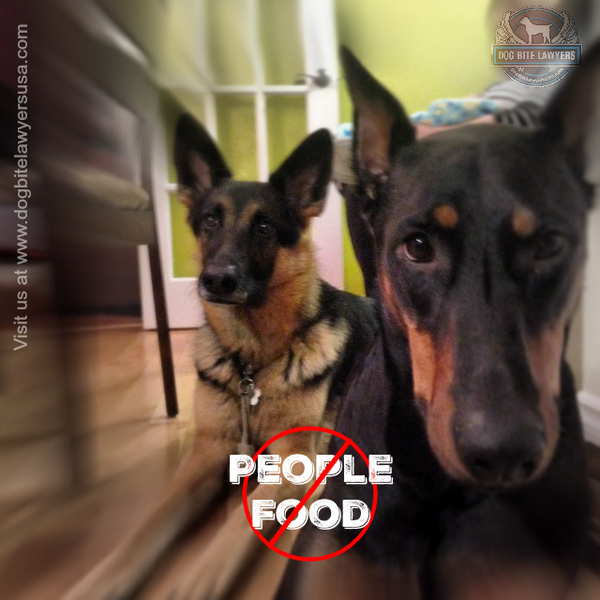
Everyone loves the holidays... especially for the food! From turkeys and potatoes to green bean casseroles and yams, we all have our favorites. During this festive time, it can be hard to resist a mooching pet, especially with so much food to go around.
However, you should know that certain holiday foods can make your pets sick or even kill them. Here are some of the holiday foods* to keep away from Felix and Fido this Thanksgiving:
Turkey
Keep your pets away from cooked turkey, chicken, or ham bones. Cooking can make the bones brittle, and if your pet eats them there is a risk they will splinter and cause internal damage. Not only is it possible for bones to cause choking, they can also cause lacerations and other damage to the tissue all along the digestive tract. Avoid giving bones directly to your pets, and be sure to dispose of them in a way that will prevent your pets from fishing them out of the garbage on the sly.
Turkey skin is a high-fat food your pet just doesn't need; your dog or cat may have a difficult time digesting all the fat, which could be unpleasant for them (and possibly your floors and furniture, too!). High-fat foods have also been known to cause pancreatitis, the symptoms of which include vomiting, pain, and listlessness. Skins can also retain butter, oil, alcohol, and spices from marinades, adding extra fat and extra hazards to this tasty treat.
Onions or Garlic
Onions are particularly bad for dogs, but both onions and garlic contain sulfides, which can lead to anemia in your pets. Surprisingly, cooking these foods does nothing to reduce how toxic they can be for your pets.
Alcohol
We've all seen what alcohol can do to humans; surely, we don't want to see our pets suffer the same consequences! Even low-alcohol beverages like beer can be toxic for pets, and ingesting alcohol in large quantities can be lethal.
Spices
Surprisingly, nutmeg can be really bad for your dog or cat. The spice, often used in “pumpkin spice” flavor mixes, can cause seizures, central nervous system problems, and even death if consumed in large quantities. Not only should you avoid giving your pets nutmeg on its own, be careful not to give them other foods (like pumpkin pie, for example) that contain nutmeg.
Sage, which many people use on their Thanksgiving turkeys, can cause an upset tummy in your dog or cat. Keep sage safely out of reach of your pets, and avoid feeding them foods that contain it as well.
Sweets, Batter, and Bread Dough
Generally, large quantities of sugar are not going to be a part of a healthy diet for your pet, so giving them sweets during the holidays is not going to be easy on their digestion, which could be fun for nobody.
Chocolate contains methylxanthines, which are stimulants similar to caffeine. When a dog eats large quantities of chocolate, they can suffer side effects like vomiting and diarrhea, panting, extreme thirst, jitters, abnormal heart rhythm, and even seizures. In extreme cases, methylxanthines can even cause death.
Pets are just as susceptible to salmonella poisoning as humans. That's why you should never allow your dog or cat to eat cake batter, cookie dough, or any other product that contains raw eggs. Symptoms of salmonella poisoning in pets include vomiting, diarrhea (sometimes bloody), decreased appetite, drooling or excessive salivation, and possibly a fever. By the way, many of these symptoms are the same for humans with salmonella poisoning; generally, everyone and their pets should avoid ingesting raw eggs when possible.
Did you know that raw bread dough – or any dough containing yeast – can rise inside your pets gut, causing bloating and pain as well as digestion issues? There is even a condition called “Raw Bread Dough Toxicosis”, and it can be fatal in some extreme cases. Your pet's insides are warm and moist, perfect growing conditions for yeast. Dough can expand so much in the stomach as to cut off blood flow and affect your pet's breathing. In addition, yeast in the dough metabolizes sugar in the dough, which produces alcohol and can essentially lead to intoxication – drunkenness – in your pet. It may sound funny, but alcohol intoxication in animals can lead to coma, seizures, nervous system problems, and death. If you think your pet has ingested raw dough, or if their abdomen is swollen (distended) or they seem drunk, take them to a vet clinic as soon as possible.
Table Scraps Can Lead to Bites
Dogs - and cats - can't resist a tasty treat when it's offered to them. In fact, many get so excited about a sneaky bit of food that they will accidentally nip or bite the hand that feeds them... literally. While it's true most of these kinds of bites are accidental and minor, even a minor bite can lead to a serious injury if it happens in the right place, or if an infection occurs. Some pets just can't handle themselves around food, and in their excitement will chomp down on fingers and hands holding a snack. If they perceive that the human holding the food is suddenly withholding it, or trying to take it away, the pet could become aggressive and try to take the food back.
Don't set your pets up to fail. Ask you guests to kindly refrain from feeding your pets any people food, and place pets in a safe, quiet place with their own food (and water) during mealtime.
*If you think your pet has ingested any of these items, or anything else they shouldn't have eaten, contact the ASPCA's Animal Poison Control Centre at 1-888-426-4435, or call a 24-hour vet clinic in your area.
Source(s):
https://www.aspca.org/pet-care/virtual-pet-behaviorist/cat-behavior/foods-are-hazardous-cats
https://www.aspca.org/pet-care/virtual-pet-behaviorist/dog-behavior/foods-are-hazardous-dogs
http://www.dogingtonpost.com/thanksgiving-day-foods-that-can-kill-your-dog/





